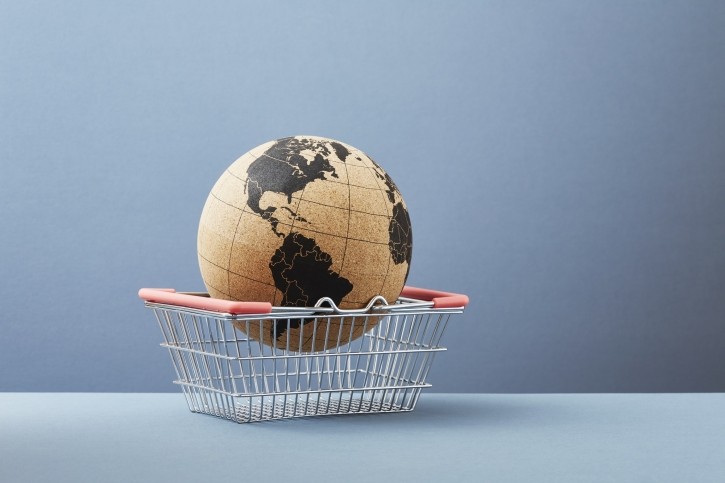Q&A: Management software company VP breaks down consumer sustainability survey results

Earlier this year, CosmeticsDesign spoke to management software company Specright's VP of Business Development, Tom Preston, for his insights into how options like the company's cloud-based Specification Management software can provide cosmetics and personal care product companies digital support through the implementation of MoCRA.
Recently, in an additional effort to further support companies in these industries in better serving their consumer base, Specright has conducted a sustainability survey to understand better consumer behavior in regards to sustainable product consumption and the impact of a company's sustainability objectives on business operations.
To learn more about the survey, its key takeaways, and how the survey's findings can be best applied to cosmetics and personal care product manufacturers and supplier operations, CosmeticsDesign interviewed Preston for his insights.
CDU: How was the survey conducted, and how were the results analyzed and compiled? What respondents were targeted for the survey?
TP: Specright surveyed 1,000 consumers in the U.S. above the age of 21 who indicated they are primary purchasers in their household using the online insights platform Pollfish. This survey was completed in November 2023. The results were closely studied, and key findings were pulled based on the raw survey data.
CDU: What types of questions were included in the survey?
TP: Specright asked various questions to better understand consumer beliefs and preferences around sustainability and how it impacts their purchasing decisions. Questions included asking consumers if they are open to paying more for sustainable products or packaging materials vs. cheaper, less sustainable alternatives, if they believe companies today are accurately and honestly reporting on sustainability efforts/progress, and how sustainability plays a role in their shopping this holiday season and heading into next year.
CDU: What types of responses were included in the survey as available options?
TP: A variety of question types were included, such as single selection, yes or no questions, or matrix tables.
CDU: What are some of the key takeaways from the survey?
TP: One of the biggest takeaways from our survey is that consumers today have a heightened interest in sustainability data and transparency from companies on their products and progress around sustainability goals. More than three-quarters (80%) of consumers surveyed said they are more likely to trust companies that back up their sustainability claims with publicly shared data.
Findings also revealed that 69% of consumers don't believe companies today are accurately and honestly reporting on sustainability goals and metrics, and 71% are more likely to believe a company's sustainability claims if they are printed directly on the product or packaging (i.e., similar to a nutritional label).
Given this increased awareness, consumers are switching up their purchasing behaviors, with primary purchasers often putting their money toward more sustainable products. More than half (58%) of consumers said they are willing to spend more money on products that are deemed sustainable or environmentally friendly.
While consumers are backing up their sustainability beliefs with their wallets, this can depend on certain factors like product or packaging material, with consumers confirming they would pay more for reusable plastic totes (62%), recycled cardboard (50%), and cornstarch foam/water soluble packaging (48%), to name a few.
This consumer sentiment around sustainability can be expected to translate into 2024 purchasing decisions, as 71% of consumers revealed they are planning to make more sustainable purchasing decisions next year.
CDU: Were any of the survey findings surprising or unexpected? If so, what were those findings, and what was surprising or unexpected about them?
TP: We were surprised to learn that a quarter (25%) of consumers today actively track government regulations around sustainability to better understand how it impacts their favorite brands and products. It's no secret regulations across the industry are on the rise, and in the last year, companies saw the introduction of The Modernization of Cosmetics Regulation Act (MoCRA) – the first major amendment to the FDAs cosmetics regulatory framework in 85 years, setting federal standards for things like recalls and product listings.
This is the government's way of standardizing how beauty and cosmetics organizations conduct business and maintain the safety of the ingredients they are using within a regulatory framework. If consumers are keeping such a close eye on shifting regulations such as MoCRA, for example, companies should be, too, as it signals a growing need to have the right data to track and report any progress around sustainability accurately.
Our survey also revealed that greenwashing impacts consumers' decision to purchase products from a company, but what's more alarming is that an overwhelming majority of consumers (67%) indicated they don't know what the term greenwashing means. Unfortunately, greenwashing is still very present in society today, with companies putting money behind marketing that makes bold sustainability claims without the right data to back them up.
Consumers are becoming more aware and educated, as we can see with the amount that now track new regulations. We expect the number of those who need help understanding greenwashing to decrease next year.
Also surprising was that 82% of consumers said they are more likely to recycle products if companies and brands include the appropriate steps for recycling correctly on the packaging. Outside of making more sustainable purchasing decisions, this shows consumers are expressing a desire to recycle and properly dispose of the products they buy but are putting the onus on companies and brands to tell them how.
CDU: How can manufacturers and suppliers to the cosmetics and personal care product industries leverage these findings to improve ingredient formulations for finished products? Packaging options? Marketing decisions?
TP: These results show consumers care about the sustainability of the products and packaging they purchase and the companies and brands they buy from. However, companies have more work to do on this front heading into the new year. Businesses must view sustainability as a "need to have" strategy now that consumers are demanding more sustainable products, and global protocols around Extended Producer Responsibility (EPR), Greenhouse Gas (GHG), CO2e emissions and climate change are placing more responsibility on manufacturers and suppliers to prove packaging and products are made sustainably.
CDU: Does Specright plan to conduct additional surveys regarding this topic or others in the cosmetics and beauty spaces?
TP: Sustainability is a key pillar at Specright, and our vision is to live in a world without waste. Consumer preferences continue to shift, and we plan to conduct additional surveys next year around this topic and others to see how it impacts the cosmetics and beauty industries and others moving forward.
CDU: Anything else to add?
TP: Our survey results underscore the pivotal role of data and how it can influence a consumer's purchasing decisions. Several organizations today still rely on legacy systems when it comes to monitoring and reporting on their sustainability objectives, often significantly impacting business operations. As we approach 2024, companies must streamline and digitize crucial product and packaging data. This will ensure accurate reporting on sustainability and ignite innovative ideas for more sustainable product development.
Want to learn more about Ingredient Sustainability and other Next Generation Beauty Consumer Trends? Please register now to listen to our free Beauty Forward Summit broadcast between January 29 and 31, 2024.









